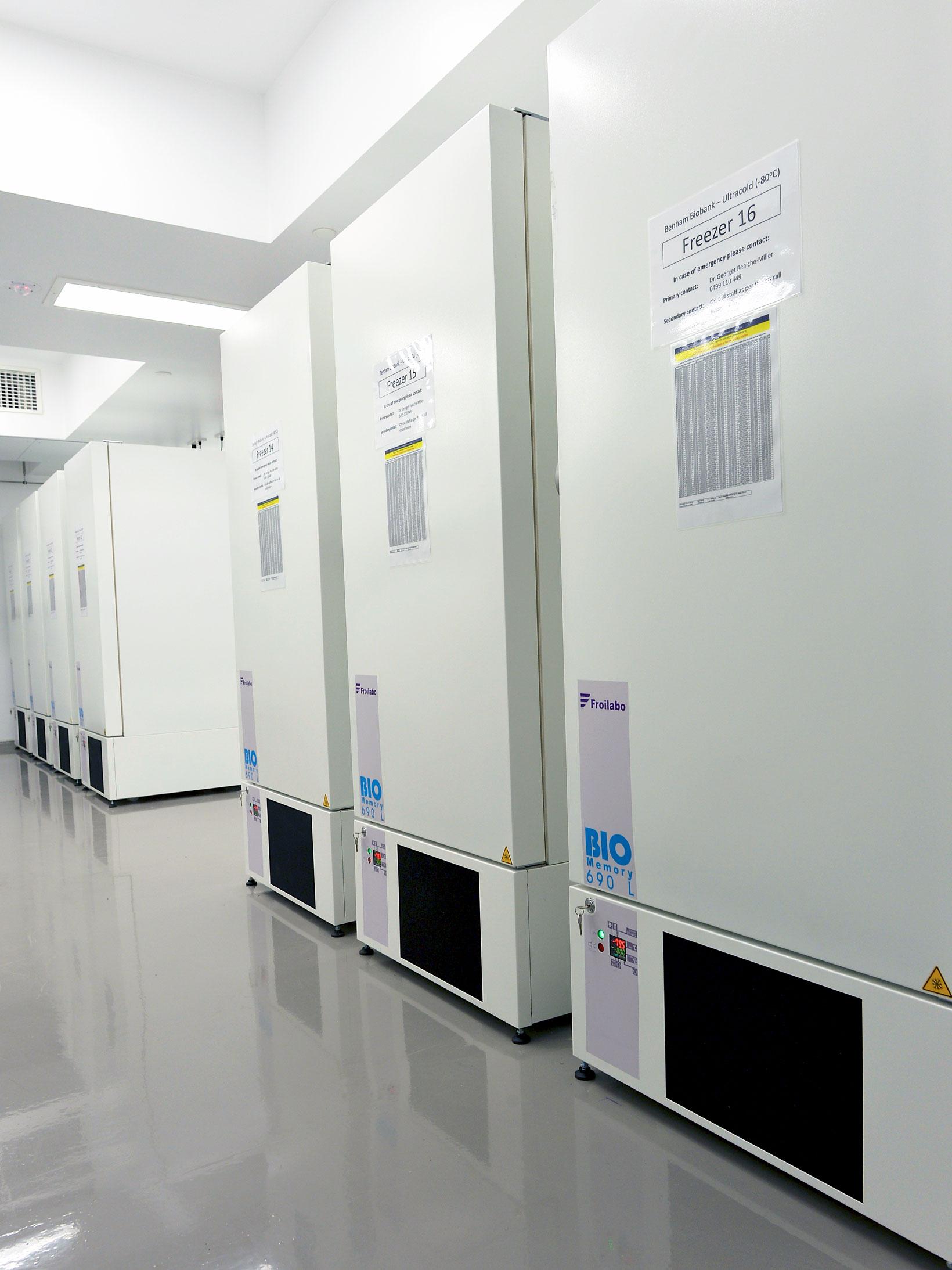The Facility
Researchers are able to benefit from use of the Biobank which is a highly specialised facility and offers long-term protection and storage for valuable ultra-cold research materials.
Research materials may consist of:
- Archival materials (irreplaceable/valuable samples from past research)
- Back-up materials (critical/valuable samples from current research)
- Materials generated from longitudinal and long-term studies (current and future research resources)
The Biobank is a "storage only" facility and no active work on samples is undertaken.
Materials to be stored are for long term storage and not "reasonably expected" to be required and accessed within 6 months from the time they are placed in the Biobank. Researchers can, however, retrieve samples at any time when required.
Suitable and acceptable material for storage in the Biobank

An inside view of the Biobank
The Biobank will accept the storage of:
- Biological specimens/samples for which a risk assessment has been undertaken, by the Chief Investigator, and that risk assessment has determined that the material is suitable to be stored in a physical containment level 2 facility (PC2).
- Microorganisms in Risk Group 1 or Risk Group 2 (as per the Australian/New Zealand Standard 2243, Safety in laboratories Part 3: Microbiological safety and containment, AS/NZS 2243:3:2010).
- Genetically Modified Organisms (GMO), providing storage meets requirements of corresponding legislation and all relevant IBC/OGTR approvals are in place and approval documentation is provided.
The Biobank will not accept the following materials:
- Microorganisms in Risk Group 3 or Risk Group 4 or requiring physical containment level 3 or 4.
- Infectious or biohazard materials not suitable for storage at physical containment level 2.
- Materials that may potentially degrade whilst in storage and produce hazardous by-products. (chemicals, toxins, etc).
- Radioactive materials.
- Quarantine materials requiring DAFF certification.
For more detailed information please refer to The University of Adelaide Biobank Operating Principals and Procedures document found in Process and Forms.
